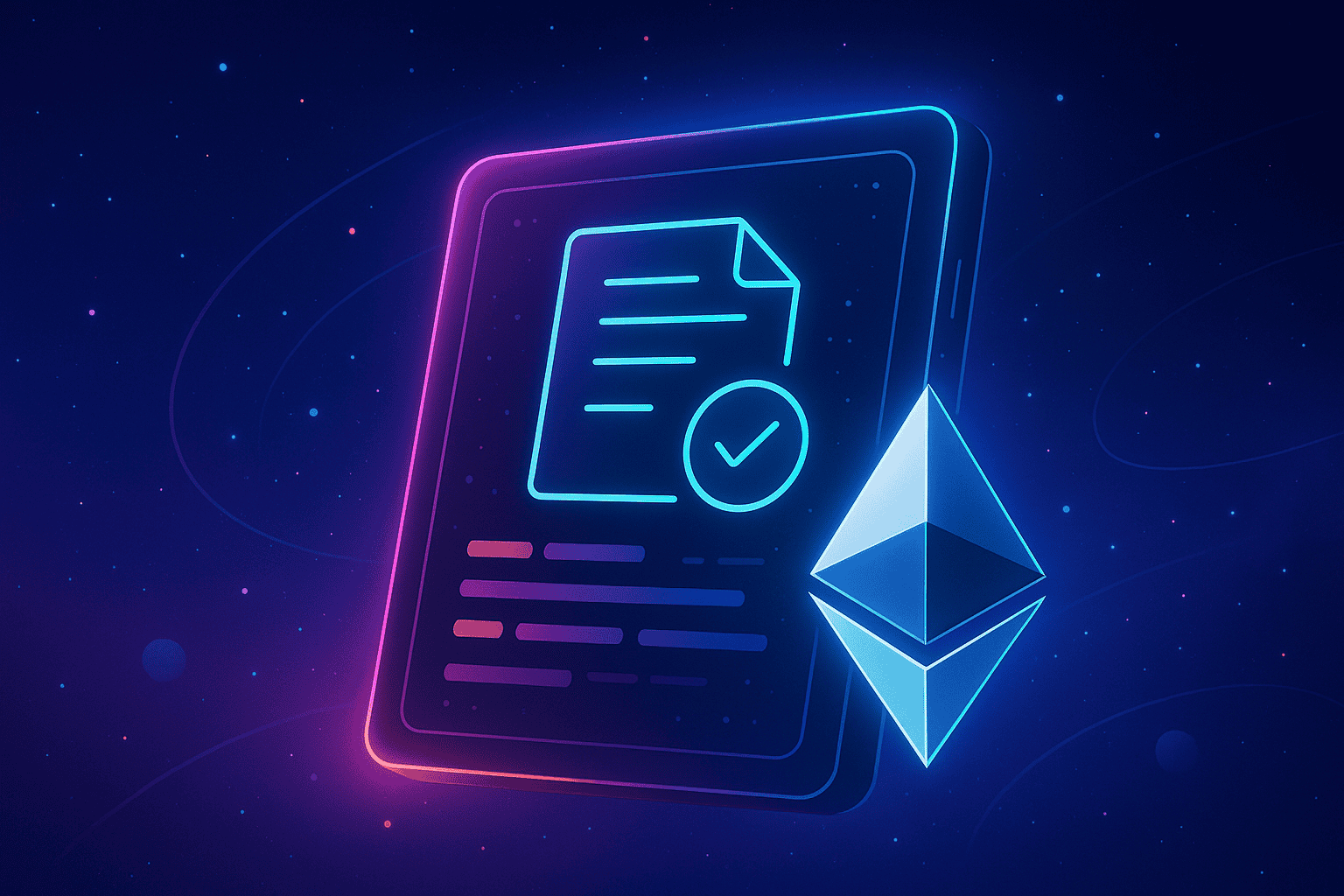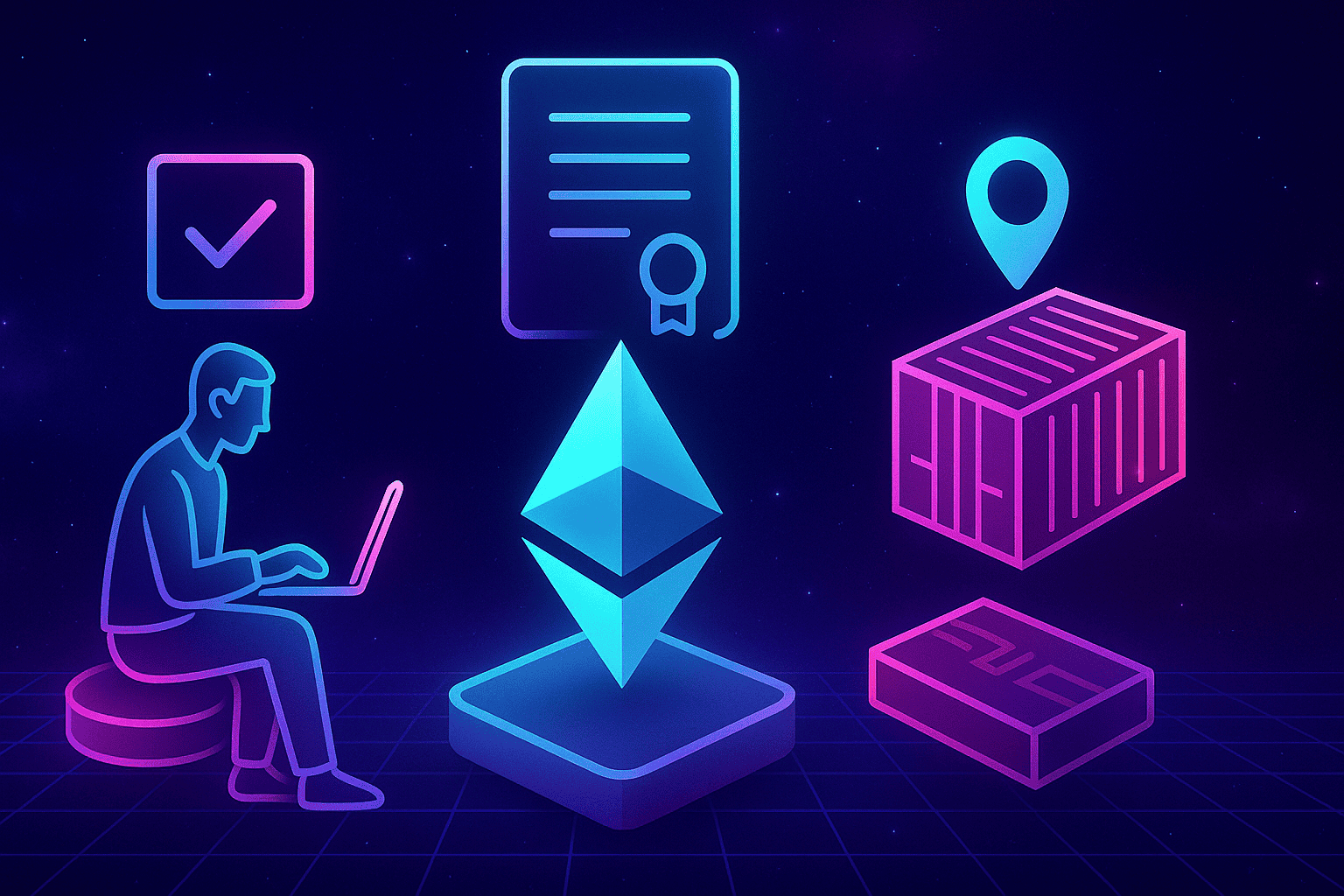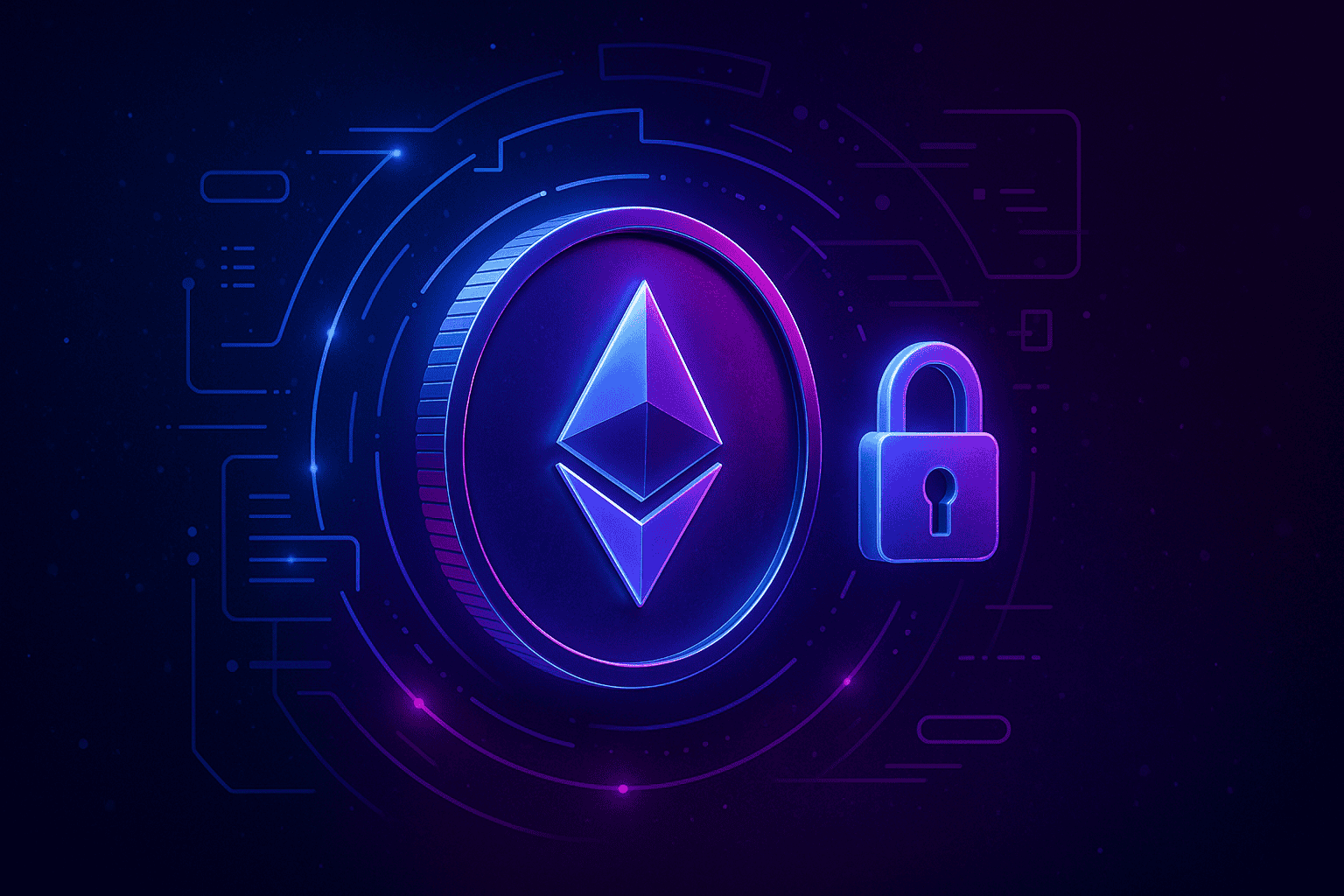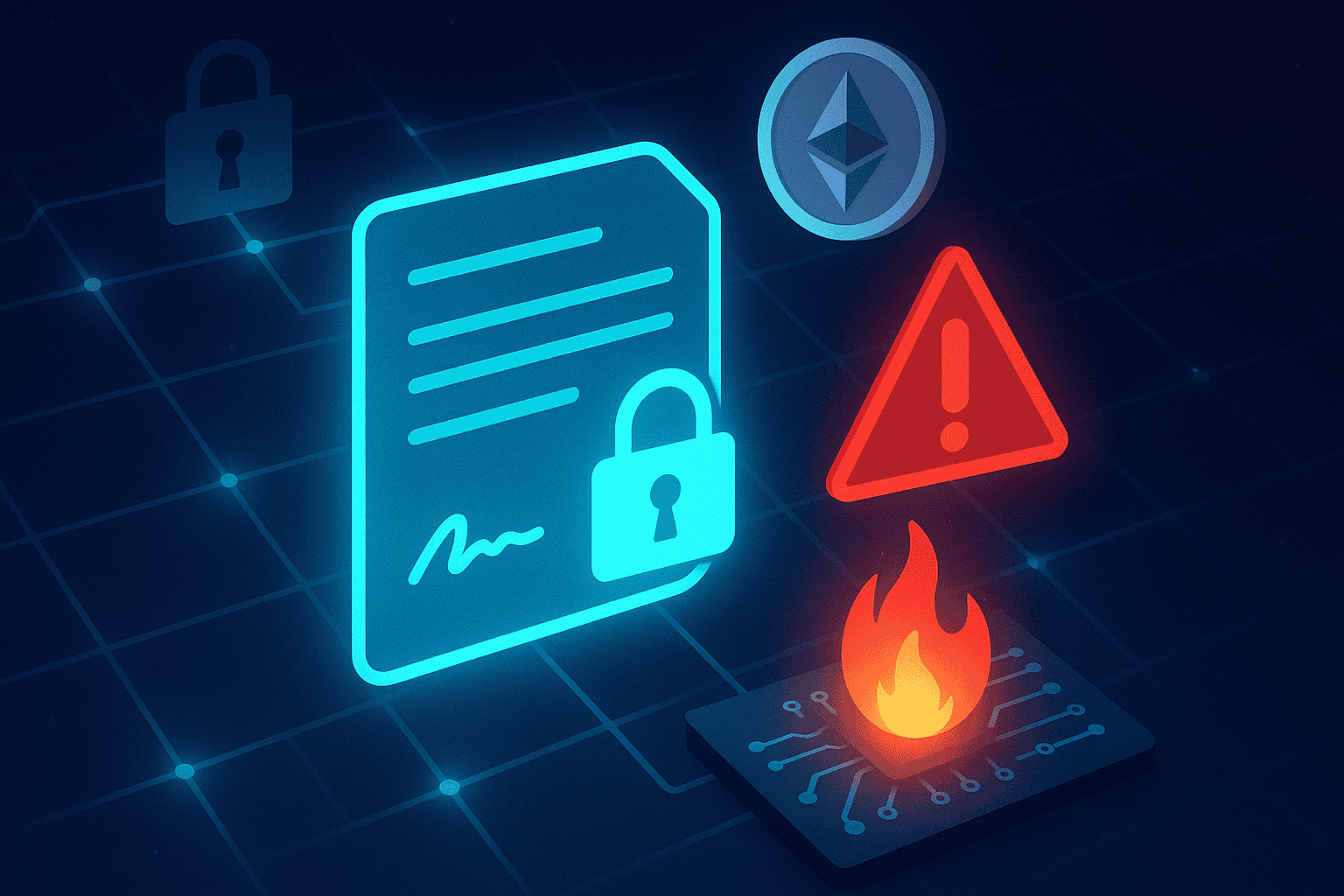Smart contracts have a fascinating history that goes back to 1994 when Nick Szabo introduced them, long before Bitcoin came into existence. These contracts function similarly to digital vending machines, executing transactions automatically once specific conditions are met. The self-executing programs handle blockchain transactions automatically and create permanent, trackable records.
Let’s break down smart contracts in simple terms and explain their practical impact.
What Are Smart Contracts?

1. They are digital agreements
Smart contracts work as self-executing digital contracts stored on a blockchain. These computer programs automatically enforce terms when specific conditions are met. The concept works like a digital vending machine – you select an item, pay for it, and the machine checks and delivers your product without human involvement.
2. They run automatically on blockchains
Blockchain networks provide the perfect foundation for smart contracts to operate. The contract code is distributed across multiple blockchain nodes after deployment, which gives it the security and permanence of blockchain technology.
Here’s how the execution works:
- The contract watches for specific trigger conditions
- The contract executes automatically once conditions are met
- The blockchain updates with the completed transaction
- Only permitted parties can see the results
3. They are written in code, not legal text
Smart contracts use programming code instead of legal terminology. Languages like Solidity for Ethereum or Chaincode for Hyperledger Fabric create a radical alteration from traditional agreements.
Smart contract code must be precise and objective, unlike traditional agreements that use natural language, which can be unclear. The code outlines how users interact with the contract, including who can participate, what inputs generate specific outputs, and when actions occur.
How smart contracts are used in real life

I) Sending payments when a task is done
Smart contracts excel at automating payments based on the verified completion of tasks. Freelancers receive instant payment as soon as someone verifies their work in the gig economy, which eliminates payment delays.
II) Managing rental agreements
Traditional property rentals come with complex paperwork and trust issues. Smart contracts automate rental agreements by enforcing lease terms, ensuring timely rent payments, and managing security deposits. Tenants can pay in cryptocurrency, while landlords can set up automated triggers to release deposits or enforce late payment penalties.
III) Tracking goods in a supply chain
Moving just one container typically needs 200 different interactions between 30 parties. Smart contracts streamline the process by automating the verification and execution of multiple business transactions. IBM and Maersk’s container management solution shows it in action. It transmits live temperature and pressure data and records all information on the blockchain, as per the terms of the smart contract.
The system automatically triggers reorders from suppliers and files insurance claims when it detects any fluctuation.
IV) Running decentralized apps (dApps)
Smart contracts are the foundations of decentralized applications (dApps). These applications offer services ranging from financial platforms to games, operating without central authorities in control. DeFi platforms, such as Aave, utilize smart contracts to facilitate lending transactions between parties without the need for intermediaries.
What makes smart contracts worthwhile?

a) No need for trust between parties
Smart contracts create a “trustless” environment. You don’t need to rely on another party’s honesty or a middleman. Traditional contracts need trust in the process, but smart contracts let you trust the code itself. The terms are publicly displayed on the blockchain, allowing anyone to verify how the contract will operate.
b) Faster and cheaper than traditional contracts
Smart contracts execute almost instantly once the specified conditions are met. Traditional contracts can take days or weeks to process and often require the services of intermediaries, such as lawyers, brokers, or escrow services.
The cost savings are substantial. Transaction costs drop substantially when middlemen are eliminated, as they no longer collect fees. A calculation on Amazon’s web platform cost $0.00, while the same operation on a blockchain cost $26.00 in gas fees.
c) No manual errors or delays
Smart contracts automation removes human error. They run precisely as programmed without manual intervention, once deployed, eliminating errors from paperwork processing. Smart contracts serve as a single source of truth, reducing the exploitation of contract clauses.
The code’s immutable nature means no one can tamper with it after deployment.
d) Everything is recorded and transparent
Smart contracts run on public blockchains that permanently record transactions. Each transaction creates an immutable audit trail. This transparency fosters trust, as all participants view the same information.
Encrypted records spread across participants make forgery almost impossible. The process creates unique accountability for verification, proof of what happened and when always exists.
What should you know before using smart contracts?

They can’t be changed once deployed
Smart contracts remain permanent by design. The blockchain prevents any code modifications after deployment. The security feature becomes problematic when errors exist in the code. A single bug could result in millions of dollars in losses. Attackers stole $79.6 million through the infamous DAO hack by exploiting a programming flaw.
Developers often use these workarounds:
- Emergency stops (“circuit breakers”) that pause execution during emergencies
- Upgradeable proxy contracts that point to new implementations
They need to be coded correctly
The code must work perfectly. Developers should audit smart contracts before deployment. New contract deployments incur additional transaction fees and leave users vulnerable during transitions. Smart contract exploits accounted for approximately $45 million (40%) of DeFi hacks in September 2024 alone, according to DeFiLlama.
They may not be legally binding everywhere
Legal status differs worldwide. Arizona and Tennessee recognize smart contracts as legally enforceable, but many jurisdictions lack clear guidelines, creating uncertainty when businesses operate across borders.
Traditional contracts enable parties to resolve disputes, renegotiate terms, or make necessary corrections. Smart contracts require specialized programming to incorporate adjudication features.
You still need to connect them to ground actions
Smart contracts rely on external data sources, called “oracles,” to connect with real-world events. The contracts would only access blockchain data without these oracles.
Oracles power many applications:
- Hardware oracles (sensors, RFID tags) confirm physical deliveries
- Data oracles provide up-to-the-minute information like weather conditions
Trustless verification – a win
Smart contracts mark a radical alteration from traditional agreements to automated, code-based solutions. These protocols work way beyond the reach and influence of cryptocurrency transactions. Rental agreements, supply chain management, payment systems, and decentralized applications thrive with this technology.
Smart contracts’ most powerful feature lets strangers conduct transactions with confidence in a trustless environment. Your understanding of these self-executing agreements enables you to utilize their benefits while navigating their constraints in both business and personal transactions.
